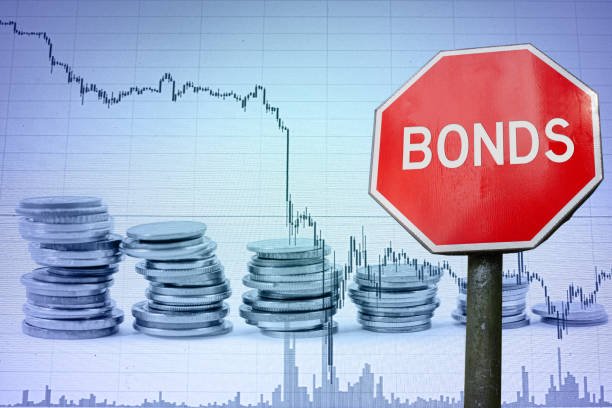Introduction
Secured Loans vs. Unsecured Loans are loans that require you to put up an asset, such as a home or car, as collateral. This means that if you do not pay the loan, you have to guarantee the loan. The main advantage of secured loans is that you get lower interest rates because the lender feels that they are less risky. Loans are generally available for higher amounts and longer repayment periods.
Secured loans involve securing a property, vehicle, or other valuable asset as collateral. The upside is that you can get more favorable terms and conditions. But, with this comes the risk that if you don’t pay on time, your security may be forfeited. Therefore, it is important to carefully assess your financial situation before taking a secured loan.
2. Unsecured Loans: Important Features

Unsecured loans are those in which no assets are held as collateral. The characteristic of loans is that they carry more risk, so the interest rate is also relatively high. These loans are suitable for small amounts and their repayment period is also short.
Unsecured loans are commonly known as personal loans, credit cards, and student loans. Loans are relatively easy to process and can be approved quickly. But, they have higher interest rates and lenders consider your creditworthiness. If you have a strong credit history, you may get better terms.
3. Secured Loans: Advantages and Disadvantages
Secured loans have advantages like lower interest rates, higher loan amounts, and longer repayment terms. If you have valuable assets and need more funding, secured loans may be ideal for you. But, their biggest drawback is that they can lose your collateral if they don’t pay you on time.
In addition, the approval process for secured loans can be somewhat lengthy and complex, as lenders have to check the value of your collateral and legalities. Therefore, assess your repayment capacity and asset value before taking secured loans.
4. Unsecured Loans: Advantages and Disadvantages
The advantages of unsecured loans are that you don’t have to put up any assets as collateral and the approval process is relatively quick. Loans are simple to apply and process and can be used for your emergency expenses, personal needs, and small purchases.
But, their major drawback is that the interest rates are high and you need a strong credit history for approval. If you have a low credit score, you may get a higher interest rate or a limited loan amount. Unsecured loans are also more risky as there is no collateral in case of default which will help the lender in recovery.
5. Choosing between Secured Loans vs. Unsecured Loans

When choosing between secured and unsecured loans you should consider your financial goals, ability to pay, and availability of assets. If you need long-term and high-value funding and you have collateral, a secured loan may be right for you. But if you need short-term funding and don’t have collateral, an unsecured loan may be a better option.
Secured loans usually offer lower interest rates and better terms, but they require collateral. Unsecured loans offer easy and quick access, but they carry high interest rates and strict credit requirements.
6. Interest Rate and Payment Terms
Interest rates are relatively low in secured loans because borrowers get collateral, which reduces their risk. The repayment terms are also flexible and you get more time to repay your loan. These loans handle your financial planning and budget from a long-term perspective.
Unsecured loans have higher interest rates because the borrowers have no collateral. Payment terms are also short-term and monthly payments can be relatively high. They provide quick access to loans and flexibility, but the interest rate is high.
7. Eligibility Criteria
Secured loans require you to provide collateral and lenders assess the value of your assets. Apart from this, you also have to prove your reputation, income, and financial stability. The value of the collateral should be commensurate with the amount of the loan so that the borrowers feel less at risk.
Unsecured loans require you to have a strong credit score and proof of stable income. Lenders evaluate your credit history, ability to pay, and financial behavior. Collateral is not required, but creditworthiness is important.
8. Loan Amounts and Usage

Secured loans typically offer higher loan amounts because funding is provided against the value of the collateral. Loans you use for major purchases, property investments, and long-term financial needs. These loans provide you with financial flexibility and great funding.
Unsecured loans have relatively small loan amounts and are mostly used for personal needs, emergency expenses, and small purchases. Loans are considered suitable for short-term financial needs, and for larger amounts, these options are limited.
9. Risk Factors and Default Consequences
The major risk with secured loans is that if you don’t make timely payments, your collateral can be forfeited. You lose your valuable assets and your financial stability is affected. Creditors help in recovery in case of loan default, you have to put your assets at risk.
Unsecured loans have no collateral when they are settled, but that doesn’t mean the risk is low. A default affects your credit score and lenders can take legal action against you. High interest rates and financial stress are also among the foregone conclusion.
10. Making the right choice for your needs
Deciding on the best choice of Secured Loans vs. Unsecured Loans depends on your financial situation and needs. If you need long-term funding, low interest rates, and more money and you have collateral, a secured loan may be the right option for you.
If you want short-term funding, easy approval, and quick access and you don’t have collateral, an unsecured loan is unlikely to meet your needs. It is important to weigh the pros and cons of each type of loan and make a decision based on your financial health and goals.
